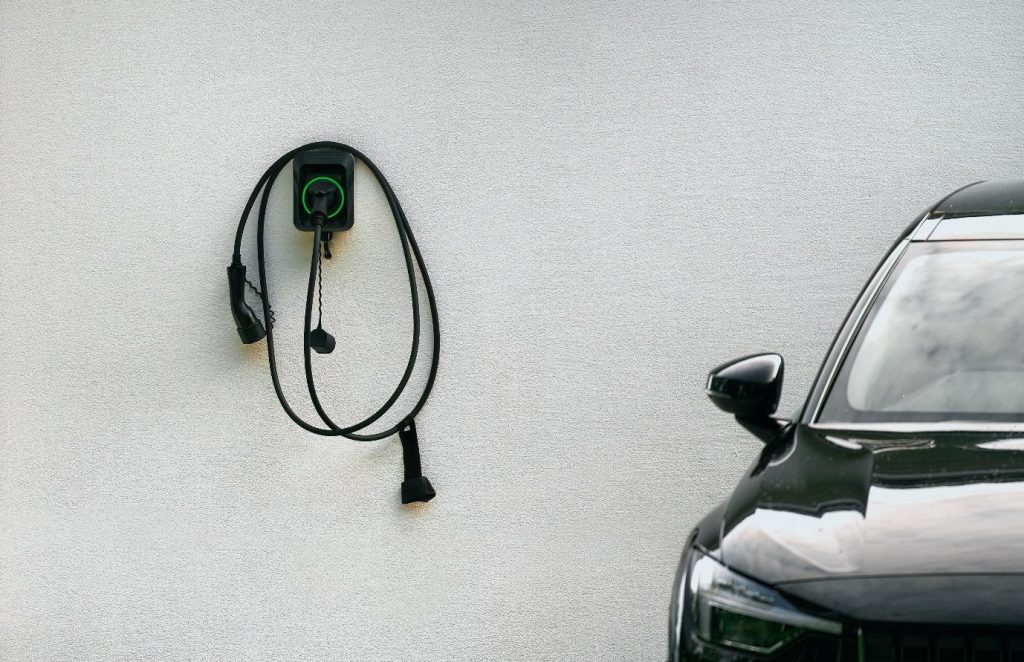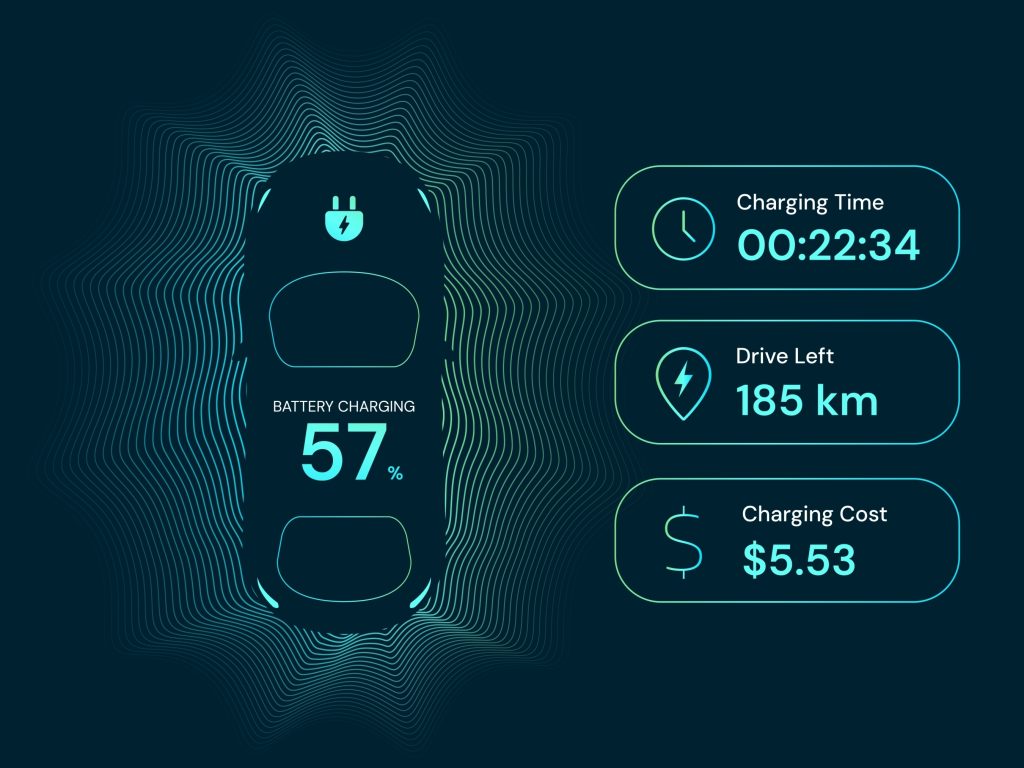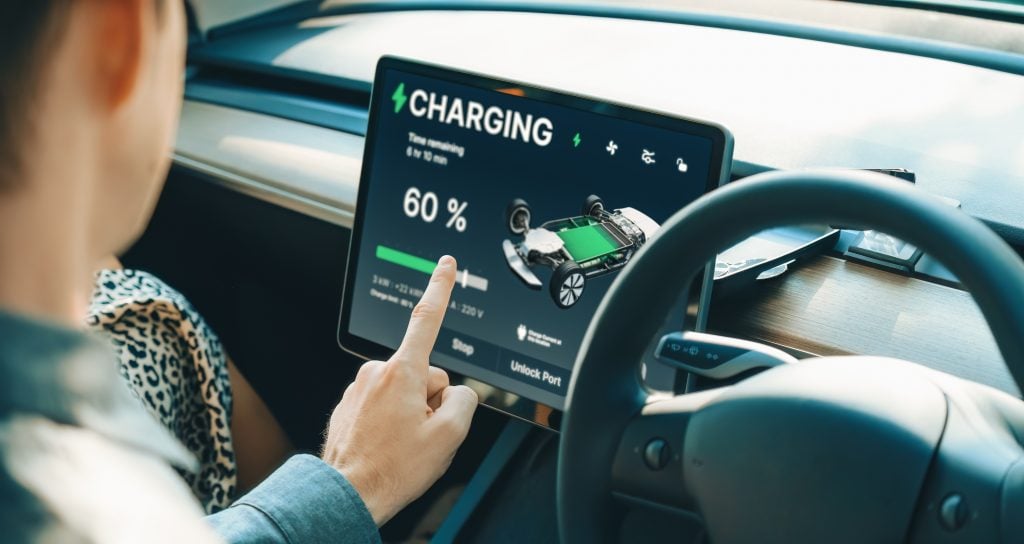Not sure about choosing a charger? Try our revamped Charger Finder!
Try our revamped Charger Finder!
- For Installations
- All our chargers come with a 1 year warranty
- Free Shipping
June 21, 2024

While the exact cost per kWh will vary state by state and depending on the season or time of day, it has been estimated that public charging systems might charge anywhere between $0.30 and $0.60 per kWh, while at-home charging can be as low as $0.16 per kWh.
As such, you could pay from $10.54 to $47.71 to charge a larger battery, say for an SUV, with average US costs coming in at around $16.53.
Far cheaper than a tank of gas!
As you might expect, many factors can affect how much EV drivers pay per charge, including the car they have and how they choose to recharge.
While the exact cost per kWh will vary state by state and depending on the season or time of day, it has been estimated that public charging systems might charge anywhere between $0.30 and $0.60 per kWh, while at-home charging can be as low as $0.16 per kWh.
While the exact cost per kWh will vary state by state and depending on the season or time of day, it has been estimated that public charging systems might charge anywhere between $0.30 and $0.60 per kWh, while at-home charging can be as low as $0.16 per kWh.
As such, you could pay from $10.54 to $47.71 to charge a larger battery, say for an SUV, with average US costs coming in at around $16.53.
Far cheaper than a tank of gas!
As you might expect, many factors can affect how much EV drivers pay per charge, including the car they have and how they choose to recharge.
The electric vehicle you buy can influence the cost per charge in many ways, including:
As with a petrol or diesel car, the bigger your vehicle, the more fuel it requires. This means that recharging a smaller car will most likely cost less, while charging a larger and heavier vehicle, like an SUV, can cost more.
This is simply because they will use more stored energy to move it from A to B.
There are many things relating to age that make charging newer cars cheaper than their older counterparts. Just as older cars are less likely to be less fuel efficient, older electric cars will have a smaller range and can take longer to charge.
The electric mile range of EV’s depends on the capacity of the battery, effectively, how much electricity they can store. As battery technology has improved, the range of electric cars has increased, from between 70-90 miles per charge to 150-300+ miles in newer models.
Likewise, thanks to technological advances in charging and EV charging units, including super-fast charging, it is now possible to use higher amp units, sockets, and compatible cables, which decreases the time the battery needs to be charged to achieve a full range.
Older electric cars can’t win here either, as many tend not to be compatible with the more modern, fastest charging types, meaning they will need to charge for longer – increasing the kWh cost.
Moreover, as EV batteries age, they lose capacity, meaning that the range gained from a full charge will also begin to decrease – so you have to recharge more frequently.
So, what does this mean in practice?
If you have an older EV, the battery will be older and likely smaller, which can make an already limited range even less. This means you’ll need to recharge more often, which can make it more expensive.

While the car itself plays a part, how you choose to charge your vehicle can also impact on how much you will pay for a full battery.
Just as some households may set their washing machines to run during the night, choosing off-peak or other discounted electricity sources can make recharging your electric car cheaper.
This also applies in reverse – choosing to charge at peak times can make it more expensive and depending on where you live can even cause interrupted or incomplete charges if your area is prone to power cuts.
A fantastic option for cheaper electricity is to use solar panels – which can be an excellent way to charge for free once the initial investment is repaid.
The type of charger you use can also widely affect the cost per charge.
If you recharge using the domestic energy supply – using a socket in your house – chances are you’ll be using Level 1 EV chargers.
Great for on-the-go, Level 1 EV chargers can allow you to connect to almost any domestic AC electricity supply with nothing more than the cable your car came with.
However, the use of a 120v supply means that on average you can only gain 5 miles per hour charged, so because of the relatively slow speed of this charger type, you will need to charge for 11-20 hours to gain the full range – which increases the cost per kilowatt hour.
For those seeking faster at-home charging, you can also opt for NEMA 14-50 EV chargers.
Available with or without specialist installation, NEMA 14-50 EV chargers can be used on 120v and 240v supplies, allowing you to vastly decrease your charging time, from 11-20 hours to just 4-6 hours and also reducing your energy bills!
Available for professional installation at home or to use when out and about, Level 2 EV chargers can also be a way to cut down on how much you’re spending per charge.
Using the 240v supply, you should expect a full range to be delivered in only 4-6 hours, helping to keep charging costs down. However, this reduction in price will be most evident if you charge during off-peak hours or utilise free Level 2 chargers in your local area – more on finding free charging here – .
If you don’t plan ahead and find yourself having to use payable public chargers, they may still be cheaper than petrol or diesel but will cost more per kWh compared to other charging options discussed above.

To keep your charging costs to a minimum, there are many things you can do, the most effective of which include:
They will have the fastest charging capabilities, more efficient batteries, and a larger range – extending the time between charges.
While Level 1 charging might be the most accessible, it is considerably slower and increases the cost per kWh.
Opting to choose Level 2 charging or NEMA 14-50 chargers will improve charging times.
Utilise the cheaper or free charging options near you – planning ahead will make this easier.
If you need more advice, don’t hesitate to contact the team – you can call us on (888) 399-6916 or email us at [email protected] and we’ll get back to you.